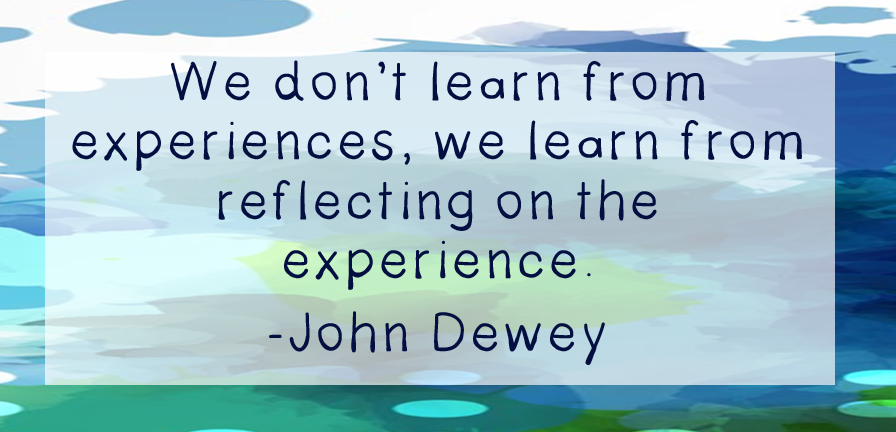Now I am going to be honest here. When I first heard about the CELPO model 4 or 5 years ago, I was unsure about what the difference between learning, progress and outcomes were. My thinking went down the line - 'if students have learnt something, then they have made progress, and if they have made progress then that in itself is the outcome. Surely these three terms are much of a muchness, why have them at all?' Well, although my logic was impeccable it did oversimplify. Now with a few more years experience I can appreciate the three terms and how they fit into the CELPO model.
Learning - AKA Curriculum, planning and instruction
In the CELPO model learning is simply about what the teacher intends the students to know and do. As such, one aspect that is being considered here is curriculum and lesson planning. Some questions that could be considered are:
- Intent - What are the students learning as a whole and why?
- Sequencing - Why are the students learning this particular topic/unit now?
- Implementation - How does the learning in this lesson achieve the intent?
If these questions have been thought about carefully, a lesson will fit into part of a wider narrative of learning, with the objectives of the lesson building upon prior learning which leads to a clear goal.
 |
| It is important to consider the curriculum journey that students will follow. This curriculum should provide opportunities for review to support long term memory and recall. |
Another aspect to consider here is how the teacher uses their pedagogical knowledge to help students engage in the learning during any given lesson. Now this could look radically different from lesson to lesson, subject to subject and teacher to teacher. One method could involve extensive teacher instruction and modelling, another could involve students quietly reading and working independently, another lesson could involve students collaborating to achieve a goal. The point is, whatever method is being used, it should be underpinned by sound pedagogical thinking and crucially support the progress of all learners in achieving the intended outcomes. This leads us on nicely to the next section...
Progress
What we learnt from the last post on engagement is that engagement in the completion of tasks does not mean that students are making any progress in their learning. A student is making progress if they know and remember more about the curriculum that they are studying. As such, student progress is a measure of their own knowledge of the curriculum we have planned for them not whether they have completed lots of tasks.
Nevertheless, what we cannot expect to do is 'see' progress happen in a 20 minute learning visit - students miraculously grasping new concepts in every lesson they have is not how progress happens. As teachers, we know that the rate of progress is inconstant - a student may grasp a concept one week, remember it the next, then lose it the following month only to recover it later. Observing it happening is not easy.
 |
| Progress is not linear. Students knowledge and their access to it can come and go, however with regular review over a prolonged period of time it will happen. |
Nevertheless, we can still gather a sense of the overall progress that students are making. One of the most effective ways of doing this is by talking to them. This is the method now preferred by OFSTED, where, rather than relying on some questionable numbers to show progress from a month old data entry, an actual conversation takes place with students about the curriculum they are studying.
'Can you talk to me about this work in your exercise book?'
'Do you often look back at learning you have done in the past?'
'How does what you are learning today relate to what you did last lesson?'
'Can you tell me what you know about this topic you studied last term?'
By asking such questions and triangulating the answers with curriculum plans and exercise books, we will get a far more valid picture of progress than a number on a spreadsheet. Ticking off KPIs may look like progress, but a student confidently talking about the KPIs and their learning of them is progress.
Obviously, in addition to looking at general progress overall, in a 20 minute learning visit, we may expect to see some formative teacher assessment of progress. This could include some low-stakes quizzing, teacher Q&A and so on. We would also expect to see some marking and feedback in books and a summative assessment or two. This is good practice that supports progress. However the proof is in the pudding - what the students actually know.
Outcome AKA Reflection and flexibility
In the CELPO model the outcome of any learning episode should be a reflection upon the progress made. From a student perspective this may be a plenary activity assessing whether students have hit the learning goals at the end of a lesson or a sequence of lessons - what Rosenshine cals daily, weekly and monthly review. This task is useful so long as the teacher does something about the results.
Teacher reflection is just as important if not more so.
Every day a teacher should be thinking about the success of their lessons: Did the students get it? How do I know? Do I need to revisit that topic sooner or later? Why did that activity work well with that class but fail with the other one? How is today's lesson going to affect the way I plan next lesson?

By being reflective teachers, we will be able to help support the progress of our students by adapting to their needs. What we don't want to do is remain stagnant and rigid delivering the same lessons we are comfortable in delivering regardless of the impact. If we fail to reflect and adapt our teaching according to our successes and failures, then student progress will be stifled. This means that in reflective practice a degree of flexibility is essential. One of the dangers of a meticulously planned curriculum is that it can act like a straight jacket - impeding reflective adaptation. Rather a curriculum should be the handrail that guides us on a learning journey. Experienced teachers should be able to occasionally let go of the handrail and take a detour (introducing different pedagogical practices or areas of subject knowledge) before returning back to main path dependent on the needs of the students.
Ian Stonnell @DenbighCPD
Further Reading
- Ross MgGill - The new meaning of progress
- David Didau - The problem with progress part 2: Designing a curriculum for learning.
- David Didau - How do we know pupils are making progress? Part 2: the Curriculum.
- TES - How to hone your skills as a reflective practitioner
- Barack Rosenshine - Principles of Instruction
No comments:
Post a Comment